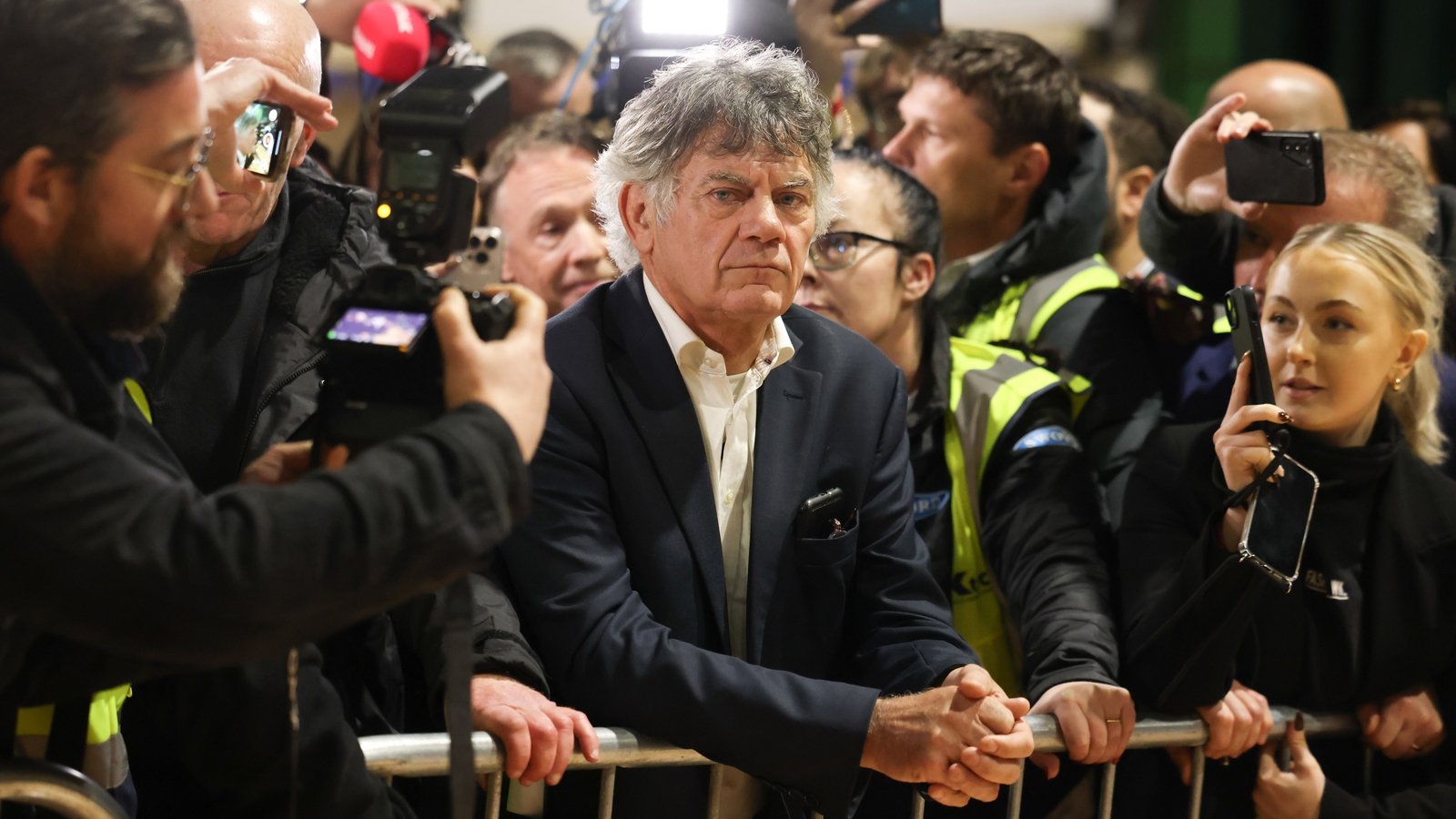If Gerard Hutch had been elected to represent the people of Dublin Central in Dáil Éireann, it would not have come as a surprise to many.
With his ability to negotiate and strategise in the most difficult and dangerous world of all, organised crime, it’s fair to say that the 62-year-old criminal, and head of the so called Hutch organised crime group, has been a playing politics in the world of crime all his life.
Known as ‘The Monk’ Gerard Hutch’s “journey” so far, has been that of a man who has overcome all sorts of adversity. From poverty and disadvantage to evading pursuit by both law enforcement and rival criminals and which has seen him avoid jail and the grave and continue on this path which has now taken him to run for politics.
Hutch may have left school at a young age without any formal qualifications, but he is not stupid. He is a highly intelligent man – who through his involvement in the sport of boxing in his community and his public stance against drugs – has embedded himself into the social fabric of Dublin’s north inner city.
Hutch was born into poverty in the area on 12 April 1963. He has always blamed poverty and the absence of any alternatives for his own involvement in criminality. His first conviction was for stealing a bottle of red lemonade for which he says he was fined. He was eight years old.
He was sent to prison at the age of 15 after he was caught stealing and breaking into shops.
“I had no choice, you had to get into crime to feed yourself,” he said.
His last conviction was over 35 years ago.
If this election has shown anything it is that in spite of the fact that he moved out of the inner city years ago to live in a large detached house in Clontarf, Hutch still has a lot of support in Dublin Central.
His campaign headquarters was the Corinthians’ Boxing Club which he has invested in to make it one of the most successful and sought after in the city. The coaching is of such high quality that parents from other parts of Dublin seek to enrol their children.
Over 3,000 first preference votes is seen by some as reflective of the sympathy there is in the area for a man whose family has been at the centre of what is viewed by his supporters as a one-sided feud. Gerard Hutch’s brother Eddie and nephews Gary and Gareth are among those shot dead by assassins working for the Kinahan organised crime group.
Huge crowds subsequently turned out for the funerals, particularly for Eddie’s funeral. The Hutch family is well known and well liked in Dublin’s inner city. Gerard Hutch was heavily disguised when he attended his brother’s funeral, but an innocent man who happened to walk beside him that day was subsequently shot dead.
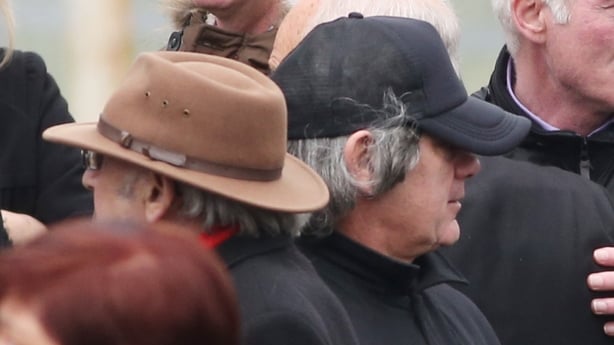
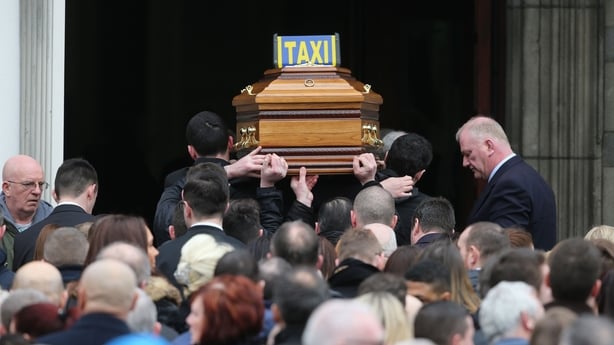
Hutch and his brother Patsy have also been targets for gangland killers and remain so. Gerard Hutch has been officially informed that his life is in danger, the unprecedented presence of armed gardaí and the Garda Public Order Unit at the RDS counting centre, testament to that reality.
The Negotiator and The Strategist
Hutch claims he earned his money from property investments which would have to be listed on the Dáil’s Register of Interests if he had been elected. He invested in property over 30 years ago, claiming the seed money came from compensation awards.
Even though it was and remains one of the biggest CAB settlements ever with a criminal, Hutch the strategist was also a realist.
He realised the CAB settlement enabled him to hold on to some of his ill-gotten gains by legitimising the money he had been allowed to keep.
Hutch had made a deal with the State, out of which, both sides got something.
Sixteen years later he sought to exercise those negotiating skills again, this time with the Kinahan organised crime group in order to stop the feud murders.
Hutch recognised the ambition of the Kinahans, to become a global force in organised crime, as illustrated by his comments to Jonathan Dowdall which were secretly recorded by gardaí in 2016 and played in the Special Criminal Court last year.
“They made a few quid but they started makin big money about two years ago,” he said in 2016. “It’s a bit of power as well, not just the money. It’s just the bleedin’ power as well.”
As an astute judge of character, Hutch knew the origins of the Kinahan organised crime group and what the individual gang leaders were like. He also knew where they wanted to go and what to expect from them in terms of criminality.
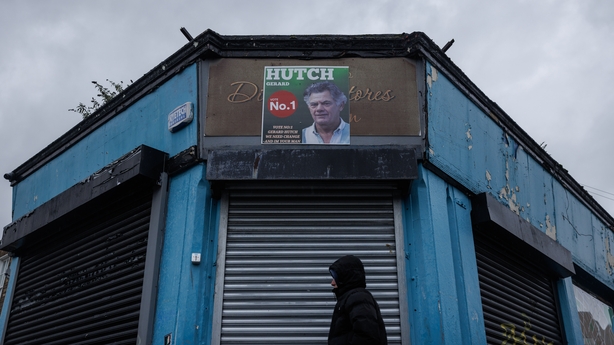
“They want to be the biggest gang in Europe, the Columbians and all, and everyone come to them,” he said. “They used the rest of the young fellas. Daniel was a wide enough twist and do this and do that and everyone was full of promises.”
Hutch appeared to be concerned by the indiscriminate nature of the feud murders and to realise they had to stop.
“There has to be another way,” he said, “don’t be using a gun all the time. The heartbreak that’s left behind”.
He decided he needed a mediator to stop the killings and asked the dissident republicans. As payment for their services, he offered them the AK47’s that were used in the murder of David Byrne at the Regency Hotel in February 2016. He referred to them on the garda recording as “them three yokes”.
Hutch also showed he had thought through all the potential ramifications of handing weapons to the dissidents. He considered the possibility of them used to murder police in Northern Ireland and being seized by the PSNI.
“Twelve months’ time,” he said, “there’s two RUC men dead there and them things are ballistically traced. Any smart copper would be saying it’s a joint yoke.”
He also considered the possibility of a double cross. After meeting the dissident republicans and on his way home that night, he said to Jonathan Dowdall that: “You wouldn’t know with them,” referring to the dissidents they had met, “you know they could be playing both sides of the coin”.
The Special Criminal Court subsequently found that Hutch had control of those weapons but he was never charged with firearms offences and never convicted.
Hutch has never addressed this issue and has declined to do so when asked.
The Million Dollar Man
Gerard Hutch knew he had to negotiate with the Kinahan organised crime group to save lives, but he also made it clear in his comments to Jonathan Dowdall that he knew just how dangerous the Kinahan organised crime group is.
“Ya have to be careful of these c**ts, their capabilities,” he said.
Hutch knew he couldn’t exact revenge for the murder of his brother from those at the top of the Kinahan organised crime group.
Even though the gang had ordered Eddie or “Neddy” to be shot dead in retaliation for the murder of David Byrne, Hutch knew that Daniel Kinahan, Liam Byrne or Thomas Kavanagh couldn’t be touched.
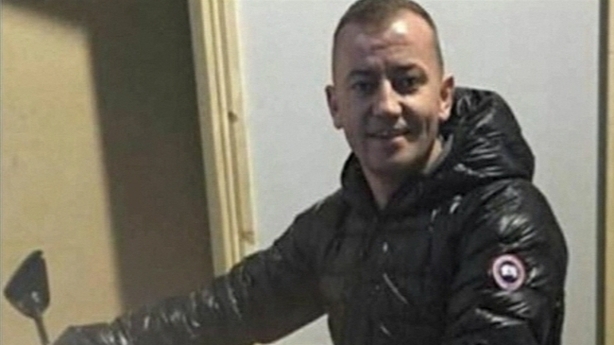
There would however be no such amnesty for the gang’s dispensable foot soldiers or as Hutch called them on the garda recordings “the f*cking hitmen” who carried out the murder.
“I’d like to be able to go out and get these assassins” he said. “The c**ts who done Neddy have to f*cking go.”
Apart from the gunmen, he acknowledged that “the shooting has to stop,” and that the dissidents “would have to be at the meet”.
He knew the Kinahan gang was trying to kill him but dismissed the suggestion of “a million quid” bounty on his head.
“Yeah that’s what was said in the paper,” he said and laughed, calling himself “the million dollar man”.
Hutch believed at the time that Daniel Kinahan would agree to a meeting with the dissidents in England to discuss peace.
“I’d say he’ll meet them in London,” he said. “It’ll suit Kinahan. Get a meeting. Sit down. We’ll have peace. I’d want them standing at it. We’ll have to. It’s the best option or go to war.”
Hutch’s approach was not personal, but in the context of the criminal underworld it was business-like and professional. He didn’t want any discussion about the past or admissions from anyone at the meeting.
It seemed he did not want to get involved in any blame game or talk about who did what or when to whom. He appeared to simply want to stop the violence and move on.
“I don’t want to go into any of that,” Hutch said. “We don’t want him [Daniel Kinahan] telling us he didn’t do Gary [a reference to the murder of his nephew in Spain]. We’re not looking for admittance off anybody.”
Hutch was aware of the urgency of the situation in 2016, the murderous tit-for-tat nature of the feud.
“I don’t want anyone else getting injured,” he said. “I’d like it put to bed. I believe whatever happens, something else happens, just stay a-f*cking-live in the meantime.”
Hutch also realised that his family needed someone of stature to officiate, someone comparable to the former Sinn Féin president.
“Try to get someone in the middle,” he said. “Gerry Adams. Someone they won’t act the bollox with, I don’t mean Gerry Adams, someone.”
Politics and The Media
The garda recordings also show that Gerard Hutch was interested in, and aware of the power of politics and the media. Hutch was travelling north to meet the dissidents with the former Sinn Féin councillor Jonathan Dowdall, who was convicted and jailed for his role in the murder of David Byrne at the Regency Hotel.
During their conversation in 2016, Dowdall criticised Sinn Féin and in particular Mary Lou Mc Donald for not attending Eddie Hutch’s funeral. Hutch was much more guarded and circumspect.
“They try to keep away from dodgy subjects at a dodgy time,” Hutch replied to Dowdall, referencing Thomas ‘Slab’ Murphy as a case in point. “They were in enough shit with the f***in’ Special Criminal Court and Slab Murphy.”
Thomas ‘Slab’ Murphy was convicted of tax evasion and jailed by the Special Criminal Court the week before in February 2016. He had previously been described as “a good republican” by the Sinn Féin former party leader Gerry Adams.
Hutch has always tried to see the bigger picture. He has been positively disposed towards the republican movement, both its paramilitary and political wings. This to some extent has been reflected in the fact that he received the most transfers from Mary Lou Mc Donald’s surplus after she was elected.
Hutch reads the papers, watches the news and listens to current affairs programmes. His conversations with Jonathan Dowdall stopped in the car journey to and from Northern Ireland to meet the dissidents in 2016 when the news came on the radio.
He gave an on the record interview to RTÉ in 2008 and he released a statement in 2016 at the height of the feud murders stressing that he and his family were vehemently opposed to drugs and the drugs trade.
“Our family are not involved in any drugs war,” the statement said. “We are well known in the north inner city and have no involvement in drugs. Our family are involved in various charitable, religious and sports groups which help young people.”
Gerard Hutch has also been very selective in the media he will deal with during his election campaign. He has controlled his appearances and not made himself widely available. He has done one podcast with Nicola Tallant of the Sunday World, been doorstepped by Henry McKean of Newstalk and agreed to answer just only two prearranged questions for Channel 4.
When asked by Ali Bracken of the Sunday Independent about the court’s finding that he had control of the guns used in the murder at the Regency Hotel, he replied that he didn’t want to talk about that.
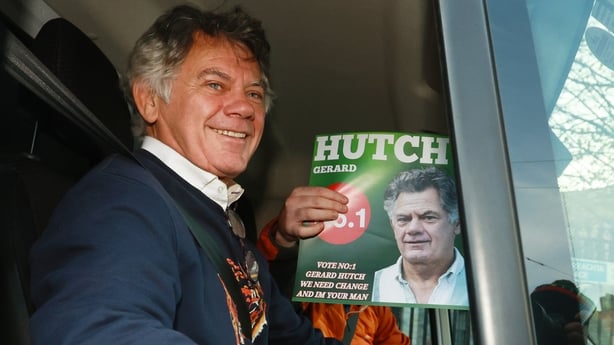
His media appearances are largely confined to his social media channels where he can say what he wants without fear of being challenged.
On his campaign video, Gerard Hutch complained that there were not enough gardaí on the streets of Dublin and that they were only “talkin about extra guards for Christmas”.
“Christmas! Is Santy Claus arriving with something special for Christmas?” he asked. “What about the rest of the year?”
Hutch says he wants more gardaí “full time” in Dublin until the streets are “clean and safe for the Irish people”.
It’s ironic that Gerard Hutch has made this call because he has said in the past he does not talk to the gardaí. He says he does not even engage in casual conversation with them.
He has described in the tapes heard at the Special Criminal Court, his strategy to deal with the gardaí if they ask to speak to him.
“Caution me”, he says to the gardaí.
“You are not obliged to say anything unless you wish to do so, but whatever you say will be taken down in writing and may be given in evidence,” he says the garda replies.
The caution informs a person of their right to silence.
“You’re after telling me to say nothing,” Hutch says he then says to gardaí.
If he had been elected, it would have been difficult to see how he would be able to represent the people of Dublin Central on the issues of law and order, and drug crime if he won’t talk to the gardaí.
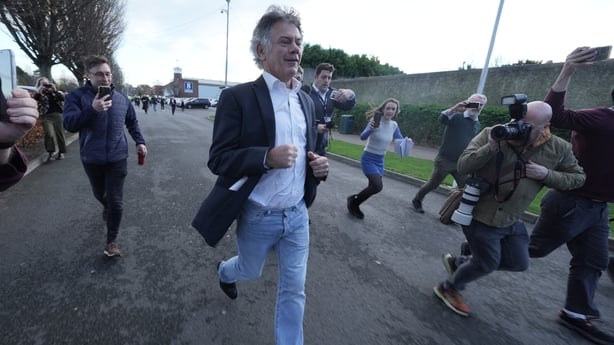
Leinster House
The fact a senior gangland figure almost got into Leinster House is for many disturbing and dispiriting – and there are others who believe won’t be the last. At the same time, they point to others who have been elected to Dáil Eireann who have been found to be violent, corrupt, tax evaders or linked to other offences.
The reasons why Gerard Hutch almost ended up a TD are varied and complex. It was more likely a combination of personal allegiance, geographical factors, disaffection, a protest or sympathy vote, the outsider factor, the perception of him as an anti-establishment figure, immigration, intergenerational poverty and disadvantage, and an outcry from a community still suffering the effects of austerity and the pandemic.
Gerard Hutch is still under investigation in Spain for alleged money laundering. He was released on bail of €100,000 to contest this election.

